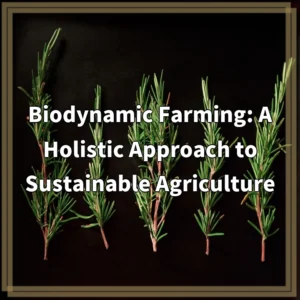What is Sustainable Urban Farming Techniques?
Sustainable Urban Farming Techniques refer to innovative methods used to grow nutritious food within urban environments in a sustainable and environmentally friendly manner. These techniques aim to address food security challenges, reduce the carbon footprint associated with food production and transportation, and promote community engagement and resilience.
Real-World Problems Associated with Sustainable Urban Farming Techniques
While Sustainable Urban Farming Techniques offer numerous benefits, there are also real-world challenges that need to be taken into account:
1. Limited Space:
Urban areas are often characterized by limited land availability, making it challenging to establish large-scale urban farms. As a result, urban farmers need to be creative in utilizing small spaces efficiently, such as vertical farming techniques or rooftop gardens.
2. Soil Quality and Contamination:
Urban environments may have compromised soil quality due to previous land use, pollution, or contamination. Urban farmers must remediate the soil or opt for soilless growing methods, such as hydroponics or aquaponics, to ensure food safety and quality.
3. Access to Resources:
Urban farmers may face difficulties in accessing essential resources like water, sunlight, and organic waste for composting. The availability of these resources becomes a critical factor in determining the success and feasibility of sustainable urban farming projects.
4. Regulatory and Policy Challenges:
Navigating the complex web of regulations and policies related to land use, zoning, and agriculture can be a barrier for urban farmers. Encouraging supportive policies and regulations that promote urban farming can help overcome these challenges and facilitate the growth of sustainable urban agriculture.
5. Economic Viability:
Establishing and maintaining a sustainable urban farm involves significant costs, including land acquisition, infrastructure, and operational expenses. Ensuring economic viability and profitability often require creative business models, partnerships, and community support.
6. Community Engagement and Education:
Engaging and educating the local community about sustainable urban farming is crucial for long-term success. Encouraging individuals to participate in urban farming initiatives, supporting local farmers’ markets, and promoting educational programs help foster a sense of ownership and collective responsibility towards food production.
7. Climate Resilience:
Climate change poses additional challenges to urban farming, including extreme weather events, temperature fluctuations, and water scarcity. Implementing climate-resilient strategies, such as integrating green infrastructure and implementing water-saving technologies, is essential to ensure the resilience and long-term viability of urban farming systems.
In conclusion, although sustainable urban farming techniques offer great potential in revolutionizing food production in cities, addressing the real-world problems associated with land availability, soil quality, resource accessibility, regulations, economic viability, community engagement, and climate resilience is crucial for a successful and sustainable urban farming system. By overcoming these challenges, we can create resilient, healthy, and self-sufficient cities that prioritize local and sustainable food production.

Solutions to Real-World Problems in Sustainable Urban Farming Techniques
Addressing the challenges associated with sustainable urban farming requires a multifaceted approach. Here are some solutions to consider:
1. Innovative Space Utilization:
Emphasize vertical farming techniques, rooftop gardens, and utilize vacant lots, community gardens, and indoor farming to maximize limited space in urban areas.
2. Remediation and Soilless Techniques:
Implement soil remediation methods or opt for soilless growing techniques, such as hydroponics or aeroponics, to ensure healthy and contaminant-free food production in urban environments.
3. Resource Optimization:
Promote efficient and sustainable water usage through rainwater harvesting, graywater recycling, and smart irrigation systems. Seek collaborations for organic waste recycling and composting to obtain nutrient-rich soil amendments for urban farms.
4. Advocacy for Supportive Policies:
Engage with local authorities, policymakers, and urban planning departments to push for regulations and policies that support urban farming initiatives. Advocate for zoning changes and incentives to facilitate the expansion and viability of sustainable urban farming.
5. Business Innovation and Collaboration:
Explore alternative business models, such as community-supported agriculture (CSA), farmers’ markets, and restaurant partnerships, to improve the economic viability of urban farms. Foster collaboration between urban farmers, local businesses, and other stakeholders to create a thriving and supportive urban farming ecosystem.
6. Community Engagement and Education:
Organize workshops, educational programs, and community events to raise awareness about sustainable urban farming and encourage participation. Foster a sense of community ownership by involving residents in urban farming activities and establishing farmers’ markets or food cooperatives.
7. Climate-Resilient Infrastructure:
Integrate green infrastructure, such as green roofs and rain gardens, to mitigate the impacts of climate change. Implement water-saving technologies, such as drip irrigation or misting systems, and adopt climate-smart agriculture techniques to enhance the resilience of urban farming systems in the face of changing weather patterns.
By embracing these solutions, urban farmers and communities can overcome challenges and pave the way for a more sustainable and resilient future in urban food production. With innovation, collaboration, and community engagement, sustainable urban farming techniques have the potential to revolutionize food production in cities, ensuring access to fresh, nutritious, and locally grown food while minimizing environmental impacts.













